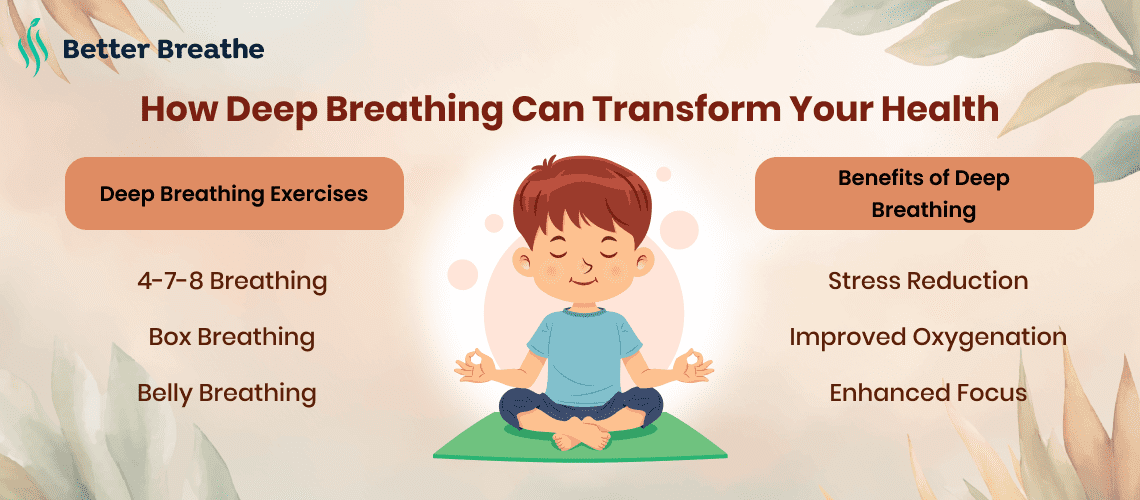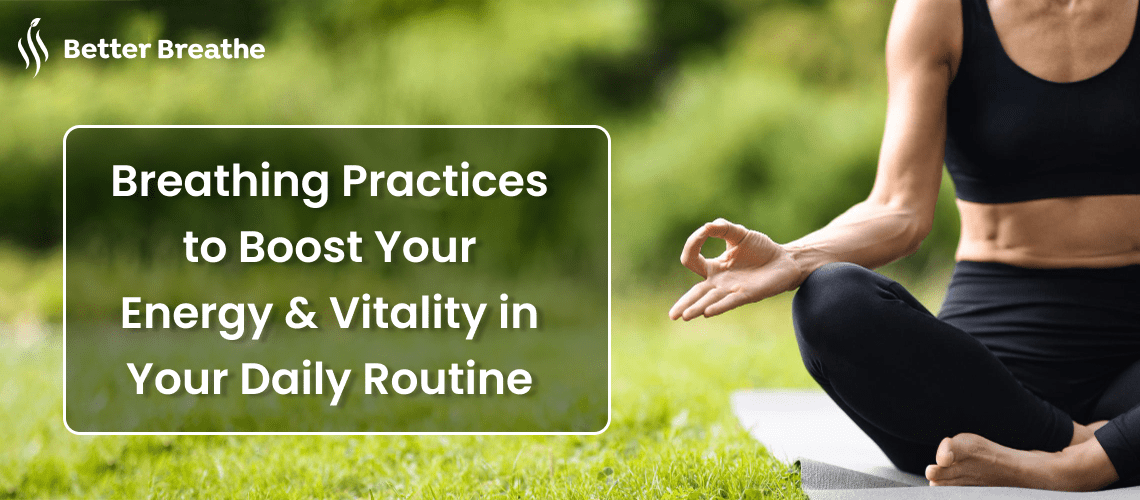Blog
Blog Details
Breath of Life: How Different Breathing Exercises Transform You
Feb 22, 2024
4 min read

In today's fast-paced society, it's easy to get sucked into the everyday chaos. Stress, anxiety, and the demands of our modern lifestyles can take a toll on our physical and mental well-being. But what if there was a simple, natural, and accessible way to transform your life for the better? Enter the world of Breathing Exercises, where the simple act of inhaling and exhaling can have profound effects on your health, happiness, and overall quality of life. In this article, we will explore the fascinating realm of Mindful Breathing and how it can truly be the breath of life you've been seeking.
Before we delve into the various breathing exercises, it's crucial to understand the science behind them. Breathing is not just an automatic bodily function; it plays a pivotal role in regulating our nervous system, oxygenating our cells, and even influencing our mental state.
The way we breathe can impact everything from our energy levels to our emotional well-being.

Deep breathing, also known as Diaphragmatic Breathing, involves inhaling deeply through your nose, allowing your diaphragm to expand, and exhaling fully through your mouth. This straightforward action can significantly improve your health:
Mindfulness meditation encourages you to be fully present in the moment, and breath awareness is a cornerstone of this practice.
Pranayama is an ancient Indian practice that harnesses the power of breath for physical and mental well-being.
Regular pranayama practice can significantly reduce stress levels and promote a sense of inner peace.
Discover how Pranayama can help you reduce stress. Breathing Techniques can help you control your emotions, calm your mind, and promote relaxation, allowing you to manage stress and cultivate inner peace. ##. Breathing Exercises for Energy and Vitality

Feeling fatigued? These breathing exercises can invigorate your body and mind.
Learn how to integrate these exercises into your daily life for sustained vitality.
If you struggle with Relaxation and Sleep, breath can be your ally.
Discover how specific breathing practices can help you fall asleep faster and enjoy a more restful night.
Breathe deeply, exhale fully, and embrace the breath's transformative power. Breathing exercises offer a holistic approach to enhancing your physical and mental well-being. Incorporating these practices into your daily routine can lead to a happier, healthier, and more vibrant you.
Better Breathe offers a comprehensive platform for deep breathing exercises and mindfulness practices, accessible anytime and anywhere through our app available on both the Play Store and App Store. By incorporating our app into your routine, you can experience reduced stress, improved cognitive function, enhanced well-being, and better overall health. Additionally, our premium features provide personalized guidance and support to maximize your breathing journey.